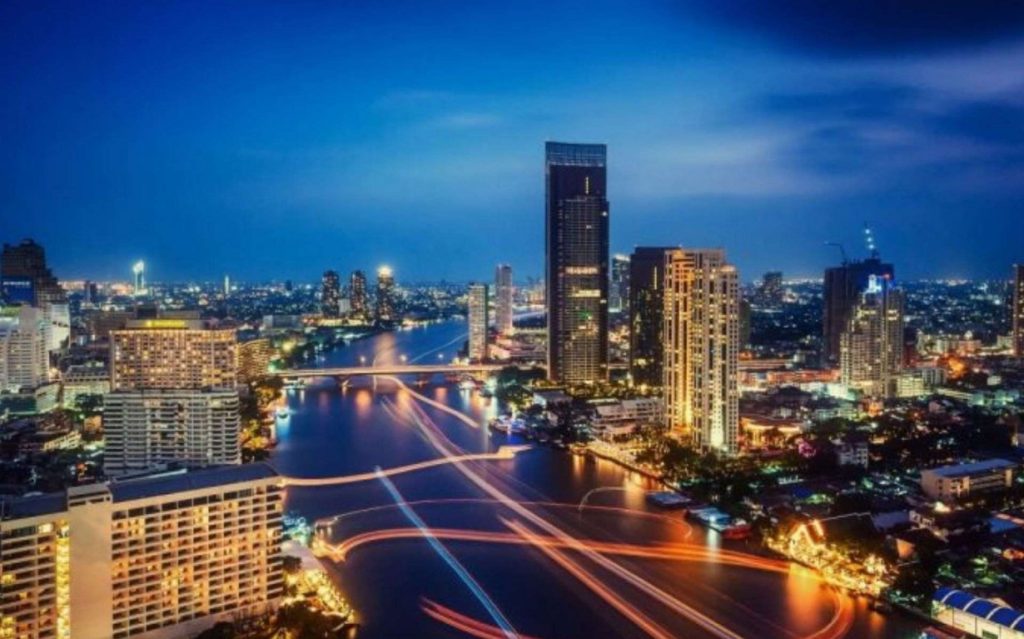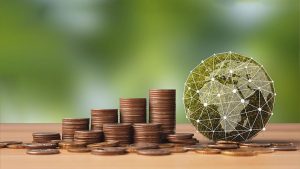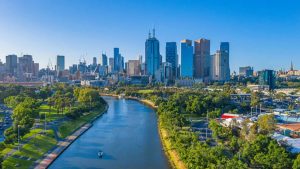
Importance Of Environmental Education In Thailand
437 schools in Bangkok, Thailand were closed in January 2020 due to air pollution passing above the allowable limit.
According to an indicator, the cost of air and water pollution for the country scales up to approximately 1.6 – 2.6% of GDP per year. The ongoing air pollution around Bangkok can even cause economic damage estimated up to an astounding 6.6 billion baht if it is allowed to persist for about a month, according to research.
Not only air pollution, plastic waste has also always been a problem in Thailand
- An average Thai uses approximately 8 plastic bags a day which adds up to 500 million plastic bags per day for the whole nation.
- Plastic waste in Thailand continues to increase at an annual rate of 12% or around 2 million tonnes which are equivalent to approximately 400,000 elephants!
- Only 0.5 million tonnes of this waste can be reused, while the remaining 1.5 million tonnes, 80% of which are single-use plastic bags, accumulate in official dumping sites or elsewhere.
The culprit of this abundance of plastic waste is production and consumption.
Numerous grocery stores in Thailand package their goods with an unnecessary layer of plastics. Adding to that, the plethora of street food vendors which Thailand is famous for double bag the parcel for most of the time.
URGENCY OF SUSTAINABILITY
Knowing that the effects of climate change and environmental problems can have severe effects on various aspects of life, sustainability has grown in urgency over the past several years.
Businesses and industries have and are gearing up towards sustainability-driven mindsets across all sectors.
- A 2019 study by Deloitte found that more than 63% of companies have formal resource and sustainability targets in place, and more than two-thirds say they’re hearing customers’ demands to increase their commitment to good environmental practices.
- A report from PwC found that around 50% of companies had built their impact strategies around several of the UN’s Sustainable Development Goals and 72% of organizations mention the SDGs in their annual corporate or sustainability reports which is a significant increase compared to 62% of last year which suggests the SDGs may now have broken into the business mainstream.
- 62% of executives consider a sustainability strategy necessary to be competitive today, and another 22% think it will be in the future.
BUSINESSES IN THAILAND AND SUSTAINABILITY STRATEGIES
In Thailand, although far from perfect, businesses have incorporated sustainability-driven strategies for their plans.
- Charoen Pokphand Foods PCL (CP Foods) is determined to become a Zero Carbon Emission (carbon neutral) organization by the year 2030.
- SCG, the largest and oldest cement, and building material company in Thailand and Southeast Asia has aligned and integrate the management of sustainability into core business strategy and has also made sure that its business practices are in line with the principle of Circular Economy.
- Somchai Lertsutiwong, chief executive of Thailand’s biggest mobile operator, Advanced Info Service (AIS) has emphasized on creating environmental and social benefits as part of sustainable development and the company has placed 7 strategic focuses for sustainability priorities
- Many shops such as seven-eleven, makro, max valu and various others have stopped providing single use plastic for their customers.
These examples showed that sustainability has broken into the business mainstream and will continue to do so as the needs are becoming more urgent.
INCREASE DEMAND IN GREEN JOBS
It’s more important than ever now that companies can show their commitment to goals that are greater than the scope of their own industry, but vital for the long-term health of the planet.
Workplaces will change, employers’ priorities will change and skills required by companies will also be different as there will be an increase in demand for green jobs.
Green jobs will start popping up in multiple sectors so businesses can work towards becoming more sustainable and environmentally friendly.
Whether it is in food, tourism, entertainment, or even the economic sector, sustainability will be the main point as people are becoming more environmentally conscious and the demand for more sustainable practices is rising.
ENVIRONMENT EDUCATION FOR PROFESSIONAL
As a professional, sustainability and environmental-related knowledge will be a very beneficial asset.
Environment Education is urgently needed for professionals and decision-makers so they can contribute to the development of skills, concepts and tools that can be used to encourage sustainable practices in multiple sectors.
Here is a list of online courses to learn about sustainability and gain those much-needed skills for the coming years:
- Strategies for Sustainability Program offered by Stanford
A self-paced online course, which explores frameworks and tools needed to promote sustainability. It is a 3-day course on how you can become a change agent through transformative leadership and design thinking. - Harvard Sustainable Business Strategy Course
The course explores the different business models that companies can use to drive change and explains why purpose-driven businesses are particularly well-positioned to tackle the world’s biggest problems including environmental problems and climate change. - Circular Economy – Sustainable Materials Management by Lund University
This course looks at where important materials in products we use every day come from and how these materials can be used more efficiently, longer, and in closed loops. The course also teaches skills and tools for analyzing circular business models in the transition to a Circular Economy. - Certificate in Corporate Sustainability, Environmental and Social Responsibility by Earth5R
Earth5R Institute of Social and Environmental Sustainability (EISES) offers certificate courses in Global Sustainability and Climate Change. The program blends online and offline learning (within 3 km of your location) with the ongoing projects. Students receive one-to-one learning and experience which offers great flexibility.
Earth5R has numerous experiences in sustainability as can be seen from the various projects done promoting Circular Economy, Social Entrepreneurship, Climate Change mitigation facilities, and more.
ACT Powai, one of the movements designed by Earth5R in India has the main focus on circular economy. The project did many community work such as awareness raising, clean up and teaches local communities about waste upcycling to create livelihoods thus creating a circular economy in a community.
The time to realize the urgent need for knowledge on sustainability and environmental education is now. Professionals need to broaden their knowledge as a company and self-knowledge of sustainability for themselves, the industry, and most importantly, for the planet.
ABOUT EARTH5R
Earth5R is an environmental organization from India with its head office at Mumbai. It works with the NGO sector, Companies and helps them conduct environmental corporate social responsibility (CSR) programs across India. Earth5R specializes in circular economy based projects. Earth5R also offers short term and long term environmental courses.
Earth5R’s Global Sustainability Hub is a cross-sector and cross-country collaboration in pursuit of UN Sustainable Development Goals. It is an excellent opportunity for governments and the private sector to engage with communities, use Sustainability-based models to drive economic changes and create social and environmental impact.
–Reported by Shafa Azzahra




